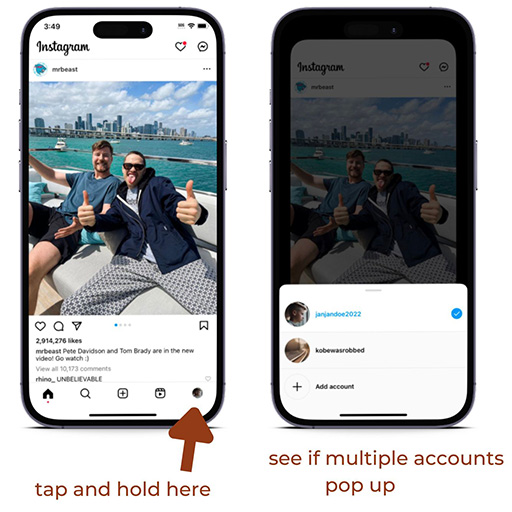
As if keeping up on your child’s online activity isn’t hard enough, many of social media’s youngest users turn to fake accounts (often called Finstas or Faketoks) to hide their activity.
Read on to learn how to tell if your child has a secret social media account and what to do about it.
Before you go into Nancy Drew sleuth mode, ask your child if they have secret social media accounts. Approach the conversation with curiosity rather than accusation — you’ll have better luck getting the truth that way.
If your child denies having secret accounts but you’re still concerned, it’s time to do some digging. Here are some things to look for:
This could be a sign they’re spending more time on another account.
Intentionally obscuring your view of their device, suddenly closing a browser, or setting their phone down when you come into the room are all signs your child might have something to hide.
Look through your kid’s friends’ accounts for pictures of your child tagged under a different account. (Of course, it’s entirely possible their friends also have fake accounts.)
Look at who your child follows on their main account as well as their followers. They probably follow their fake account, and you may be able to spot a username or profile pic that gives them away.
Both Instagram and TikTok allow users to manage multiple accounts from a single device. Simply tap their username at the top or bottom of the app. If they have multiple accounts, a dropdown menu of usernames will appear.

Remember, trust is a two-way street — it’s best to tell your child you need to look at their phone, rather than snooping.
While it’s natural to be upset when your child deceives you, it’s also developmentally appropriate for adolescents to occasionally try and hide things from their parents.
There are many reasons why kids create secret social media accounts. Some are cause for concern, like hiding risky or illegal behavior, but others are harmless, like posting silly videos or sharing vulnerable feelings they’re embarrassed to put on their real account.
Finstas and Faketoks are common with today’s adolescents. If you discover your child has a secret social media account, it’s important to address it with them in an open, respectful manner that addresses their underlying reasons for creating it and takes their age into account. Nobody likes feeling duped, but meeting your child where they’re at — and setting clear expectations about their online activity— can help reinforce the trust you share with your child.